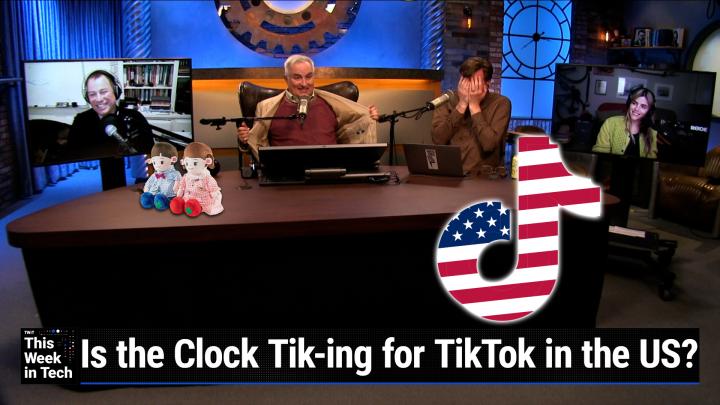TikTok's Fate in the US
created with AI, edited by humans
The possibility of a nationwide ban on TikTok, the wildly popular video-sharing app, has sparked a spirited debate about the complex interplay of national security concerns, data privacy issues, and political considerations. On a recent episode of the This Week in Tech podcast hosted by Leo Laporte, a group of panelists explored the merits and drawbacks of a TikTok ban with nuance, thoughtfulness, and enthusiasm.
At the heart of the debate is whether TikTok, owned by the Chinese company ByteDance, poses a legitimate threat to American interests. While lawmakers on both sides of the aisle have raised concerns about data collection, user manipulation, and Chinese propaganda, the panelists offered a range of perspectives on the matter.
Tech journalist Louise Matsakis acknowledged the existence of some risks but cautioned against overestimating them. She argued that if the Chinese government were truly interested in espionage, they would likely use more covert methods than exploiting a high-profile app like TikTok. Additionally, she pointed out that other companies already collect and sell sensitive information, making TikTok's data less valuable in comparison.
Tech policy expert Mike Masnick echoed similar sentiments, suggesting that the fears surrounding TikTok's potential for user manipulation and propaganda are overblown. He cited studies indicating that most users seek out content they're already interested in, rather than being easily swayed by algorithms. Masnick also raised concerns about the precedent a TikTok ban could set, potentially prompting other countries to retaliate against US tech companies.
While acknowledging the app's addictive nature, the panelists questioned the wisdom of singling out TikTok when other social media platforms face similar criticisms. Roberto Baldwin humorously noted that if the concern is about protecting children's minds, lawmakers should consider banning Instagram, Facebook, and even Twitter.
The discussion took an intriguing turn when former President Donald Trump's stance on the issue was brought up. In a surprising twist, Trump opposed the ban, possibly influenced by his connections to a TikTok investor. This revelation highlighted the complex political undertones surrounding the debate, with both parties potentially weighing the electoral implications of their decisions.
As the panelists delved deeper into the nuances of the TikTok controversy, they remained optimistic about finding a resolution that balances the various factors at play. They emphasized the importance of data privacy regulations, social media's impact on youth, and the potential consequences for US-China relations. Overall, the panelists demonstrated a sincere interest in exploring this complex issue with enthusiasm and confidence.
Become a subscriber and never miss an episode: This Week in Tech
